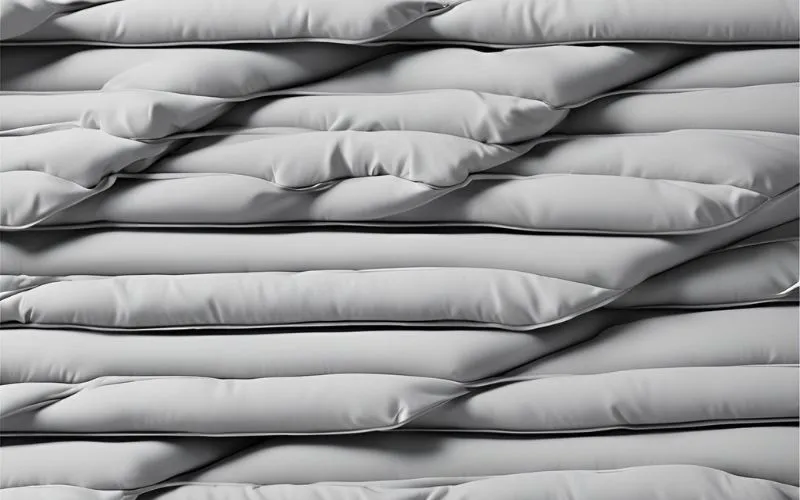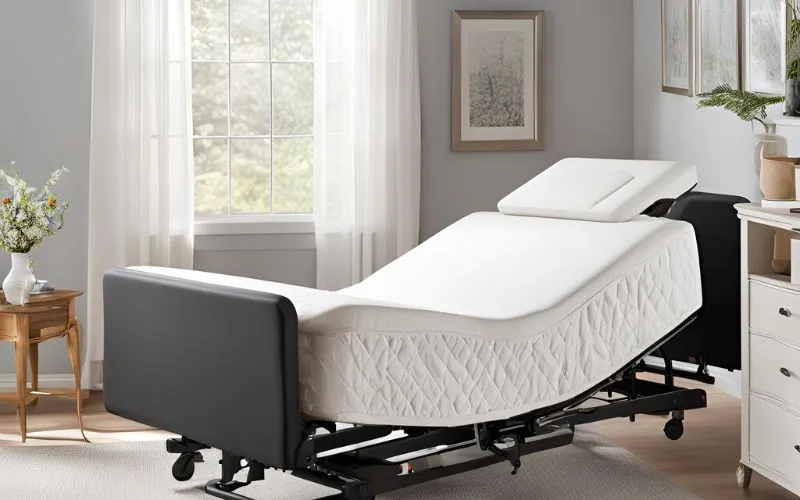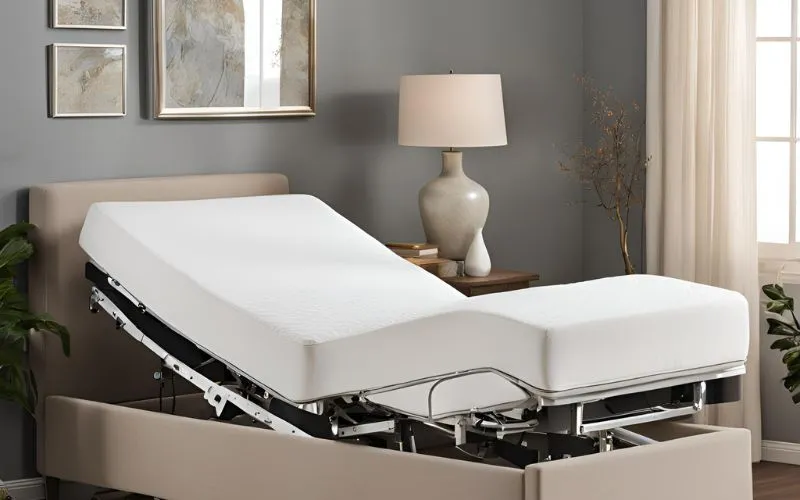Sleeping Aids for Recovery: Benefits and Considerations

Introduction
Quality sleep is essential for recovery and overall well-being. In this article, we’ll explore the critical role of sleep in the recovery process, common challenges in achieving quality sleep, and the use of sleeping aids for enhanced recovery. Understanding the impact of sleep on physical, mental, and emotional recovery is vital for making informed decisions about sleep aids and optimizing recovery.
Understanding the Importance of Quality Sleep for Recovery
The Role of Sleep in Physical Recovery
Sleep is a fundamental component of physical recovery and plays a crucial role in the body’s repair and regeneration processes. Here are some key points to understand the significance of sleep in physical recovery:
- Muscle Growth: During sleep, the body releases growth hormone, which is essential for muscle development and repair. This aids in muscle growth and assists in the recovery of muscle tissue after strenuous physical activity.
- Tissue Repair: Adequate sleep promotes cellular repair and the restoration of damaged tissues. It allows the body to mend micro-tears in muscles and tissues, leading to enhanced recovery and reduced risk of injury.
- Physical Rejuvenation: Quality sleep is crucial for the renewal of energy levels, restoration of strength, and revitalization of physical capabilities. It provides the body with the necessary boost to recover and perform optimally.
- Immune Function: Improved sleep quality is linked to stronger immune function, enabling the body to better defend against infections and support overall health during the recovery process.
- Inflammation Reduction: Quality sleep helps in reducing inflammation, which is vital for the recovery from physical exertion and injuries. It plays a key role in lowering the risk of chronic inflammation-related conditions.
- Hormonal Regulation: Adequate sleep facilitates the regulation of hormone levels, particularly cortisol. Balanced hormonal activity supports efficient physical recovery and stress management.
By understanding the importance of sleep in physical recovery and adopting healthy sleep habits, individuals can enhance their body’s ability to recover from physical exertion, minimize the risk of injuries, and optimize their physical performance.
The Role of Sleep in Mental and Emotional Recovery
Quality sleep plays a multifaceted and indispensable role in mental and emotional recovery. It is not merely a period of rest, but a critical process that contributes to the restoration and rejuvenation of the mind and emotions.
Here are some key aspects highlighting the profound significance of quality sleep in mental and emotional recovery:
- Cognitive Function: Adequate sleep is fundamental for maintaining optimal cognitive function. During sleep, the brain consolidates memories, processes information, and facilitates learning, all of which are crucial for mental recovery.
- Emotional Regulation: Quality sleep is intricately linked to emotional regulation. It aids in managing and processing emotions effectively, promoting emotional stability and resilience during challenging times.
- Mental Clarity: Sleep directly influences mental clarity and focus. A well-rested mind is better equipped to make sound decisions, solve problems, and maintain mental acuity, which are essential for emotional recovery.
- Mood and Stress Levels: Insufficient sleep can detrimentally impact mood and elevate stress levels, posing significant obstacles to emotional recovery. Conversely, quality sleep fosters a positive mood and reduces stress, fostering an environment conducive to emotional healing and growth.
- Psychological Resilience: Adequate rest is a cornerstone of psychological resilience. It fortifies the mind against the detrimental effects of stress, adversity, and emotional strain, enabling individuals to bounce back and recover from challenging experiences.
- Emotional Well-being: An insufficient amount of sleep can contribute to increased anxiety, irritability, and compromised emotional well-being, hindering the overall recovery process. On the other hand, prioritizing quality sleep can significantly enhance emotional well-being and expedite the path to recovery.
Furthermore, the role of sleep in mental and emotional recovery extends to the realm of self-care. Cultivating healthy sleep habits, such as maintaining a consistent sleep schedule, creating a tranquil sleep environment, and engaging in relaxation techniques, can profoundly impact mental and emotional well-being.
Common Challenges in Getting Quality Sleep for Recovery
Identifying Factors Affecting Sleep Quality
- Stress: Stress can be a significant factor affecting sleep quality. Chronic stress can lead to difficulty falling asleep, staying asleep, and achieving deep, restorative sleep. It can also contribute to sleep disorders such as insomnia and hypersomnia.
- Irregular Sleep Schedules: Disruptions in the body’s internal clock can impact the regularity and duration of sleep. Shift work, jet lag, and irregular sleep patterns can disrupt the natural sleep-wake cycle, leading to decreased sleep quality and increased daytime sleepiness.
- Environmental Disturbances: Environmental factors such as noise, light, and temperature can disrupt sleep patterns. Creating a quiet, dark, and comfortable sleep environment can help improve sleep quality and promote better rest.
- Underlying Health Conditions: Various medical conditions, including sleep apnea, restless legs syndrome, and chronic pain, can significantly impact sleep quality. Seeking medical evaluation and treatment for these conditions is crucial for improving overall sleep quality.
Understanding and addressing these factors are crucial for improving sleep quality and facilitating the recovery process. Lifestyle adjustments, relaxation techniques, and creating a conducive sleep environment can significantly impact the quality of sleep.
Impact of Poor Sleep on Recovery
Poor sleep quality can have significant implications for the recovery process. It is associated with an increased risk of injury, slower healing, compromised immune function, and reduced mental resilience. Additionally, inadequate sleep can contribute to heightened pain sensitivity, impaired decision-making, and prolonged recovery periods, hindering the overall recovery and restoration of health.
Exploring Sleeping Aids for Enhanced Recovery
Natural Sleep Aids
Natural Sleep Aids
Natural sleep aids play a crucial role in promoting better sleep quality and supporting the recovery process. They encompass a wide range of techniques and remedies that can enhance the body’s natural sleep patterns and contribute to improved recovery outcomes.
Relaxation Techniques:
- Progressive Muscle Relaxation: This technique involves tensing and then relaxing each muscle group in the body, promoting muscle relaxation and eventually leading to better sleep.
- Deep Breathing Exercises: Deep, slow breathing can activate the body’s relaxation response and help in preparing for a restful sleep.
- Yoga and Tai Chi: Practices such as yoga and tai chi can help reduce stress and anxiety, thus promoting better sleep quality.
- Guided Imagery: This technique involves using the imagination to create a calming and peaceful environment to facilitate sleep.
Herbal Supplements:
- Valerian Root: This herb has been used for centuries as a natural remedy for insomnia and is believed to promote better sleep.
- Chamomile: Known for its calming properties, chamomile can be consumed as a tea to aid relaxation and promote sleep.
- Lavender: The soothing aroma of lavender is known to have a calming effect, which can help improve sleep quality.
- Passionflower: This herb is often used to alleviate insomnia and promote better sleep patterns.
Lifestyle Adjustments:
- Establishing a Consistent Sleep Routine: Going to bed and waking up at the same time every day helps regulate the body’s internal clock and promotes better sleep.
- Mindfulness Meditation: Practicing mindfulness can help reduce stress, anxiety, and promote relaxation, leading to improved sleep quality.
- Limiting Screen Time: Avoiding screen exposure before bedtime can help in preparing the body for sleep by reducing the impact of blue light on the sleep-wake cycle.
- Creating a Relaxing Sleep Environment: Making the bedroom conducive to sleep by adjusting room temperature, reducing noise, and ensuring comfort can significantly impact sleep quality.
Medical Sleep Aids
Medical sleep aids, when prescribed and used responsibly, can offer targeted support for individuals struggling with sleep disturbances that hinder recovery. These aids may include prescription medications, cognitive behavioral therapy for insomnia (CBT-I), and other interventions designed to address specific sleep-related challenges and promote restorative sleep, thereby contributing to enhanced recovery.
- Prescription Medications
- Cognitive Behavioral Therapy for Insomnia (CBT-I)
- Other Interventions for Specific Sleep-Related Challenges
Choosing the Right Sleeping Aid for Individual Needs
Consulting with Healthcare Professionals
When considering the use of sleeping aids for recovery, consulting with healthcare professionals is essential. Healthcare providers can offer personalized guidance, assess individual needs, and recommend suitable sleep aids based on the specific recovery goals, existing health conditions, and potential interactions with other medications or treatments. Collaborating with healthcare professionals ensures safe and informed choices regarding the selection of appropriate sleeping aids.
Conclusion
Quality sleep is a cornerstone of effective recovery, influencing both physical and mental well-being. By understanding the role of sleep in recovery, addressing common sleep challenges, and exploring suitable sleeping aids, individuals can optimize their recovery journey. Prioritizing healthy sleep practices and seeking professional guidance when necessary can significantly enhance the recovery process and contribute to overall well-being.




